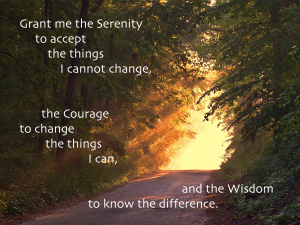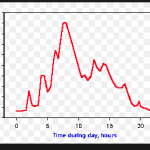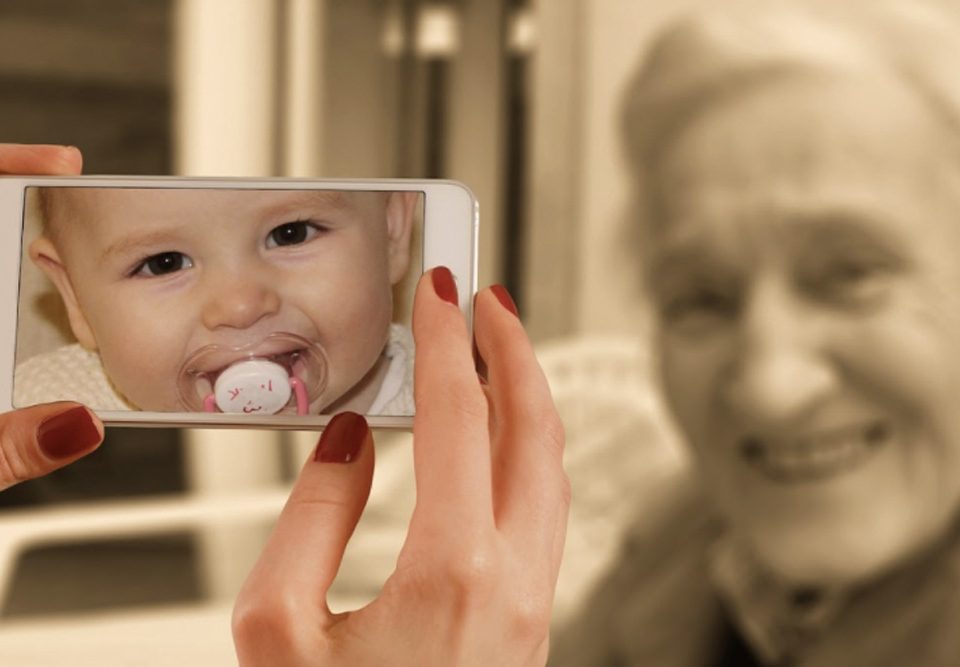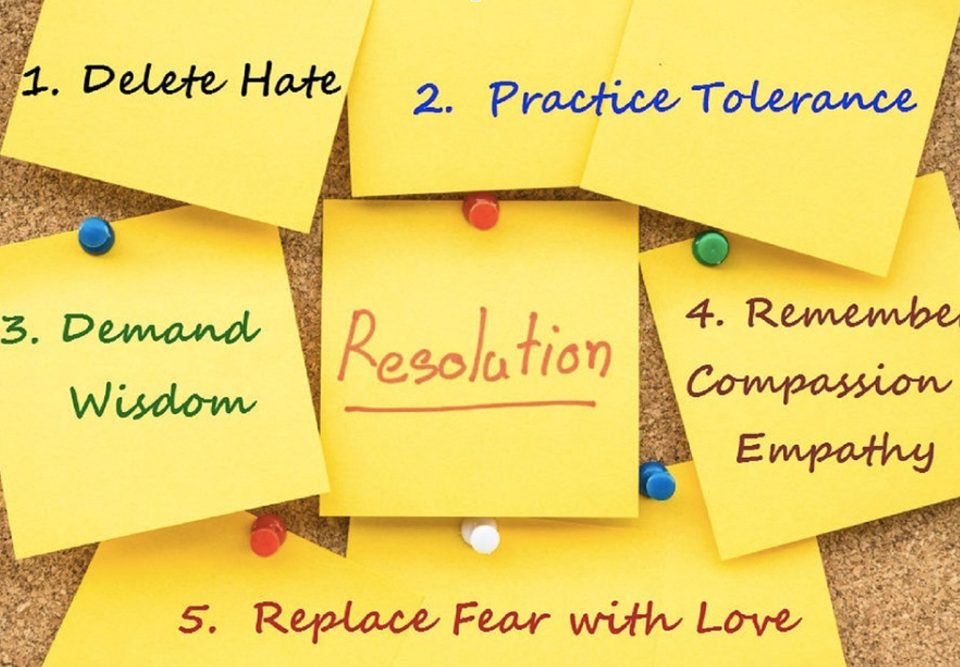Maybe your problem with sleep isn’t what you think
4 Steps to Change
September 9, 2014Sleep and Fatigue – From Lark to Owl
September 16, 2014Have you ever said – or heard – things like, “Why can’t I get to sleep? Why can’t I get back to sleep after I wake up? Why am I still tired when I’ve gotten enough sleep? What’s wrong with me?”
This sounds a lot like the Habit of Personal Responsibility For Everything.
Yes, I know, you really are the center of the universe. This true for every single one of us from our own perspective.
Ah, but this is a continuum from one end of “I’m the cause of what happens” to the other end of “I’m the cause of what happens.”
The healthy habit side might be this:
Peace begins with me.
The other end is more like: Something’s wrong with me.
This question is coming up because I’ve been tuning into fatigue lately. After breaking my ankle in late July, being encumbered by crutches and a boot was fatiguing. As I hobbled past a big burly security guard I got a laugh when I cracked a joke, “I didn’t know lifting weights was so hard!
But this has also been an opportunity to pace my daily life, including more time for reading and resting — and reverting to my owl-like nature.
During some of my recent late nights, I’ve been looking into the phenomenon of sleep — problems with it and feelings about it.
Okay, I confess, this actually is a long-standing conversation for me.
One of my family’s jokes is that my 7 am birth time is the earliest I’ve been up since. My position: I’d been on the job all night preparing to enter a new world! Research that the baby triggers labor shows that this is likely.
But 7am and I have rarely been friends – even on weekends. Getting up for school as a kid was always a drag. I still think that early morning school hours are ridiculous, and now the American Academy of Pediatrics agrees with me.
So it’s no wonder that given some extra time off, the night owl emerges. It’s just like clockwork.
Sleep and its companion, Fatigue
Sleep and fatigue go hand-in-hand. They beleaguer most of us at some point in our lives. What I notice is how much we’re socialized to put responsibility for this on ourselves.
I’m all for personal responsibility, but let’s take a deep breath and bring in the Serenity Prayer:
For instance, when it comes to sleep cycles, you probably know if you’re a lark or an owl. But if you this minimize how living in today’s world sets the tone for your difficulties, you’re not creating space for what you can really make happen.
So let’s get wise about the ways you’ve been set up. I hope this helps you reset the focus and know what you’re truly responsible for.
~ ~ ~
1) You have a biological rhythm that is personal to you. This is true whether you are a morning person, a night person or have what’s called a “neutral” rhythm that is somewhere in between. Scientists studying these things say that your personal rhythm, called a chronotype, is genetic. It exists before you do as a person.
The chronotype continuum is more varied than just larks and owls, however. You can find out more and participate in a study about this.
Possible Solutions:
- Your genetic heritage is yours. Honor it by listening to your natural daily rhythm instead of fighting it. Seek work that is in sync with your clock.
- If you’re in circumstances right now where you can’t adjust your job or change jobs, then do just one thing à Be open to opportunities. When you have your antenna up, you’ll notice them more than if you are closed down.
~ ~ ~
2) We live in a collectively weary world. There is no way you’re the cause of this big influence on your daily rhythm, even though you are effected by it.
This is a big deal when it comes to sleep and fatigue, because there’s nothing normal or healthy about the typical workday. You know how the saying goes, “follow the money.” Well, during the Industrial Revolution forward, work and productivity left the natural world. In 2013, the authors of one study from the International Journal of Advances in Psychology wrote, “It cannot yet be discerned how far-reaching the damage due to our society’s rhythmical mismatch is.”
The common norm of starting work at a particular time (usually morning) and continuing through a day, doesn’t fit our biological rhythm, impacts health and can even put lives at risk. Driving While Drowsy is an increasing problem as so many of us muddle through without the sleep we need.
Also, the 5-day workweek that labor unions fought for in the last century has now morphed into an any-hour any-day workweek on a multiple time-zone calendar. No wonder we’re tired!
This is true whether you’re a lark, an owl or a neutral. Here’s how it works that doesn’t work for most of us:
- You’re a lark. That’s a good fit with a daytime work schedule, but not for the rest of your day. You rise ready to go and your energy drops in the late afternoon, just in time to leave work. But socializing after work doesn’t fit your rhythm, because you’re nodding off. On your days off, you may party later, but you end up sleep-deprived because you can’t sleep in: Your clock is set to rise early on your days off, too.
- You’re an owl. Unless you find evening shift work, you are sleep-deprived during a daytime work cycle, because getting up and going to work early is out of sync with your daily rhythm. You are built to enter the day slowly and your best time is in early evening into the night. On your days off from work, you don’t have to get up early, so you default to your night-time rhythm, going to bed late, rising late. But that off-cycle starts up again when your Monday comes calling.
Possible solutions:
- Leonhard Widrich writes about a more personal, human way to be productive.
- Michael Cho has a great blog post that corroborates my research – and some excellent ways to shift from managing your time to managing your energy.
~ ~ ~
3) The Buddha was right. Life is suffering and suffering is caused by expectation. Many sleep problems today are more about our definition of “normal” sleep – and you’ve probably bought into this “collective delusion.”
Researchers know this because how “normal” sleep is defined has changed.
As science writer Elizabeth Kolbert wrote last year in The New Yorker, “So many people have trouble getting to sleep between eleven at night and seven in the morning because sleeping between eleven and seven isn’t what people were designed to do.”
Depending on where you live in the world, you may experience a different scenario. I grew up in a part of the world where the “siesta” is normal. It just makes sense during the hottest part of the day to rest after lunch. In New Orleans where I also lived for a while, it was common to work in the morning when it was cooler, and then break for a long relaxing lunch and then work again well into evening. It was not unusual at all to have dinner at 9 or even later, and then go out for music into the night. While I’m sure that wasn’t the rhythm for everyone, it certainly was the rhythm for the city. Needless to say, I loved this about New Orleans.
Just as your energy ebbs and flows in daytime, it also modulates at night. Kolbert tells us that historically even stoic North Americans used to sleep “naturally”:
They went to bed not long after the sun went down. Four or five hours later, they woke from their ‘first sleep’ and rattled around — praying, chatting, smoking, or making love. (Benjamin Franklin reportedly liked to spend this time reading naked in a chair.). Eventually, they went back to bed for their ‘second sleep.’
Today, she writes, “Anything else — sleeping during the day, sleeping in bursts, waking up in the middle of the night — is taken for being unsound, even deviant.”
But napping, or even just resting, is not for people who have nothing better to do — the old and the lazy. It’s normal!
Possible Solutions:
- Even if you have a less-than-ideal work schedule, you can reduce stress by adjusting your understanding about what’s normal! If you have a first sleep/second sleep rhythm, consider the price you pay for the tension and stress that comes from fighting your natural rhythm. How might you experience your mid-sleep break differently? Acceptance could create possibilities. Yes, it could mean getting to bed sooner so that you get the rest you need. It could mean educating your boss and negotiating a different rhythm. Even in a down economy, keep those antenna up for work that is a better fit for who you are, instead of the other way around.
- On the leisure side, I hope you make this time fulfilling by following your natural rhythm. If you’re early to bed and early to rise, can you stop apologizing to others because partying after work is not your style? If you’re the opposite, can you stop buying into the conventional wisdom that you’re never going to get ahead because the early bird gets the worm? Some studies suggest, the stamina of the owl serves just as well.
~ ~ ~
4) Some aspects of your daily rhythm are a combination of genetic and social factors, sometimes called “epigenetics,” and impact your energy levels and creating fatigue.
What’s probably outside your personal daily control: Your age, environmental factors such as air and water pollution and many disease states, which have many different influences.
What’s within your ability to control: Your lifestyle.
Here are some examples:
- Cortisol: You’re probably familiar with the function of this hormone, which is associated with awakening and sleeping rhythms among other things.
The Genetic: Cortisol levels generally peak in the morning and then gently decrease toward nighttime.
The Epigenetic: It turns out that eating creates some uplift in cortisol level. Here’s a picture of a typical 24-hour cortisol cycle with “0” on the bottom row being midnight.
You can see the early morning surge in the large spike – followed by a drop and then smaller peaks in the afternoon and evening. These may explain the dip in energy most of us feel after lunch or dinner. But it sure does make the link between food and energy levels obvious.
The Genetic: Some research has been done into the relationship between chronotype and cortisol levels. If you are a night owl, for instance, your morning cortisol levels are likely to be lower than if you are a morning lark. This does not necessarily mean that you are unhealthy.
The Epigenetic: Your cortisol levels are influenced by epigenetic factors! Stress that effects cortisol is often linked to outside influences.
- Menopause: Fatigue, lethargy, mood swings, depression, and irritability often occur during menopause.
The Genetic: These symptoms are also found in sleep disruption across the board, regardless of age and gender. What makes it so common in menopause? Hot flashes. In The Body Clock Guide to Better Health: How to Use your Body’s Natural Clock to Fight Illness and Achieve Maximum Health sleep researcher Michael Smolensky writes:
[Hot flashes] are the prime cause of sleep disruption in women over age fifty, Suzanne Woodward of Wayne State University School of Medicine reports. Her studies show that hot flashes in sleep occur about once an hour. Most prompt an arousal of three minutes or longer. Independently of their hot flashes, women who have them still awaken briefly every eight minutes on average. The sleep process dramatically blunts memory for awakenings, Woodward said, and in the morning women seldom realize how poorly they slept.
The Epigenetic: Women in the developed world are more likely to experience hot flashes because they are more likely to enter this phase of life with stressed out adrenal glands.
Women’s health specialist Christine Northrup, MD, writes:
If the intensity and frequency of the stresses in your life—either those internally driven (such as your perceptions about your life) or those externally driven (such as having surgery or working the night shift)—become too great, then over time your adrenal glands will begin to become exhausted. This will mean that you are much more likely to suffer from fatigue and menopausal symptoms.
Possible Solutions:
- If you believe you’re not getting enough sleep, don’t keep guessing and worrying. Find out by seeing a sleep specialist.
- Give your cortisol levels a boost. Eating meals is not just about weight management or getting all your vitamins and minerals. It’s about energy management and is within your own power. If you live in the San Francisco area, consider getting support from my colleague Dawn Preisendorf, M.A., a nutritionist at Stillpoint Integrative Health Center, or you can search for a Functional Medicine nutritionist.
- Consider getting your cortisol and other levels tested just in case you have a condition that can be treated. If you live in the San Francisco area, consider an evaluation with my colleague at Stillpoint Center, Nathalie Bera-Miller, MD – or you can search for a Functional Medicine practitioner.
- If you’re in perimenopause or menopause, give your adrenals a rest by reducing your response to external stressors: Yoga, swimming, walking, music, being with friends, joining a therapy group to develop stress-antidote practices.
- Support a normal menopause process. Dr. Northrup offers suggestions to “change what you can.”
- In addition, I found Managing Menopause Naturally to be a breath of fresh air in its explanation of how Traditional Chinese Medicine approaches this stage in life
The belief that there’s something wrong with you, only sends you into a spin cycle of searching for answers in a scattered way that doesn’t lead to real help, or leads you into shut down, where no options feels possible.
So the first thing to reorganize is the habit that you are personally responsible for everything. You don’t have to hold up the sky. The Universal Life Force will do that for you.





